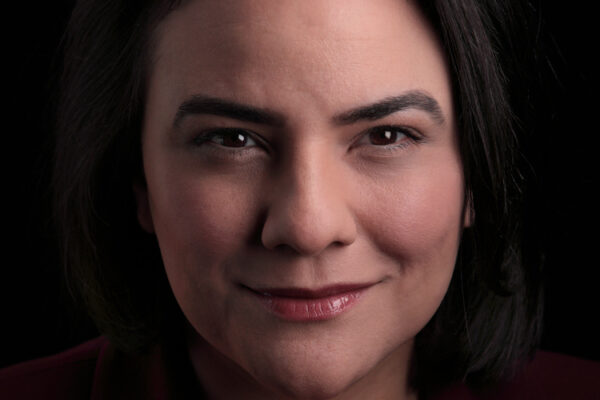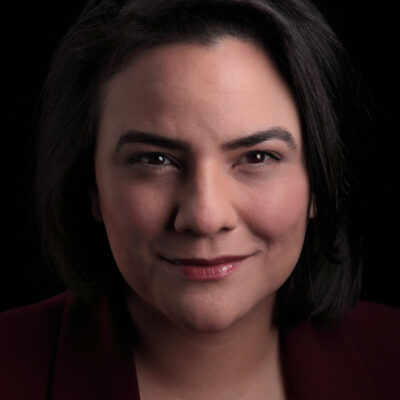I remember listening to my father’s small black radio, tuned to NPR, as I got ready for my journalism classes on the morning of Sept. 11, 2001.
That morning, longtime anchor Bob Edwards interrupted the broadcast: Two planes had crashed into the towers of the World Trade Center. As chaos and confusion erupted globally, I was filled with panic. In those first moments, I could not have imagined the sorrow and betrayal of suspicion that would follow Muslim communities nor the love and resilience that we would nurture for ourselves.
On that morning, I ran out of the house, hair still wet, heart racing. Soon we would learn that four planes were deliberately crashed, brutally killing thousands. Through guttural sobs, I vacillated between the questions “why” and “who,” fearing the possibility that these horrific acts were committed in the name of my religion.
Within minutes of arriving at Wayne State University, my favorite professor locked eyes with me as my classmates shuffled out when she announced that class was cancelled. She demanded that I, the only Muslim in class, head home immediately for my own safety. Her fear for me and my family was palpable.
It was in that moment that everything changed — brown eyes looking back at me, pleading for me to protect my family.
NPR blared through my speakers as I drove home to Dearborn. An ominous quiet had settled onto our streets, yet inaccurate news reports of Muslims dancing and celebrating in Dearborn aired on reputable news outlets without confirmation or correction.
This quiet was only interrupted by newly raised American flags snapping in the wind in the hopes of communicating the depth of our pain as Americans in a city that we had built for ourselves. The Arabic calligraphy of shop signs that danced elegantly alongside the English text would now appear as crosshairs for the media, anti-Muslim zealots and law enforcement officials who would descend onto our city.
I wish that our fears had been unfounded, had emerged only after hate incidents permeated our communities, or had subsided as calls for unity were noted.
Instead, the fear was constant. In those first hours, my mother called my sister and warned her to remove the misbaha, or prayer beads, from her car as she drove home.
My neighbor, a white man in his perpetual 60s, warned that he liked my mother even though she’s a Muslim, but others would not be so kind.
Later, a newspaper publisher would tell me that I was hired as an intern because he wanted someone on the “inside” if there was another terrorist attack. “The inside of what?” I thought, but didn’t ask the question, hoping ignorance would save me from the indignity of the answer.
Yet the indignities were inevitable.
Within days, the all-consuming fear turned into an aching knowing of what was to come — the U.S. government began to almost immediately subjugate Muslims at home and abroad in my name. To be clear, anti-Muslim sentiment did not start on Sept. 11, 2001. Muslims in America, especially Black Muslims, have long been crushed by the weight of government surveillance, targeting and discrimination.
And yet, in the days and weeks after 9/11, a shroud of secrecy enveloped this nation that has yet to be completely lifted.
We were changed; I was changed.
It was this reality that forced me to abandon journalism for civil rights activism, eventually joining the ACLU's communications department 15 years ago. I could no longer simply tell stories of our harm. I wanted to change our reality.
We wouldn’t know, at first, the extent to which the U.S. government would launch its own brand of blood-revenge — extrajudicial killings, torture, extraordinary rendition, and indefinite detention in Guantanamo Bay and CIA blacksites later recognized for their inhumane treatment. We wouldn’t know for years to come what men like Binyam Mohamed, Khalid El-Masri, Mohamedou Ould Salahi and countless others would suffer at the hands of our government in dark corners of the globe.
And on U.S. soil, panicked and helpless families looked for their fathers, uncles, sons and brothers — our community members who were disappeared, held for days, weeks and months by the federal government in undisclosed locations, thousands later deported.
Immigration judges would unsuccessfully attempt to close hearings to the public and to the press. Five thousand additional Muslim men would be targeted for surprise visits from the FBI, under the guise that answering questions was voluntary.
To read the article from the Detroit Free Press, click here.


